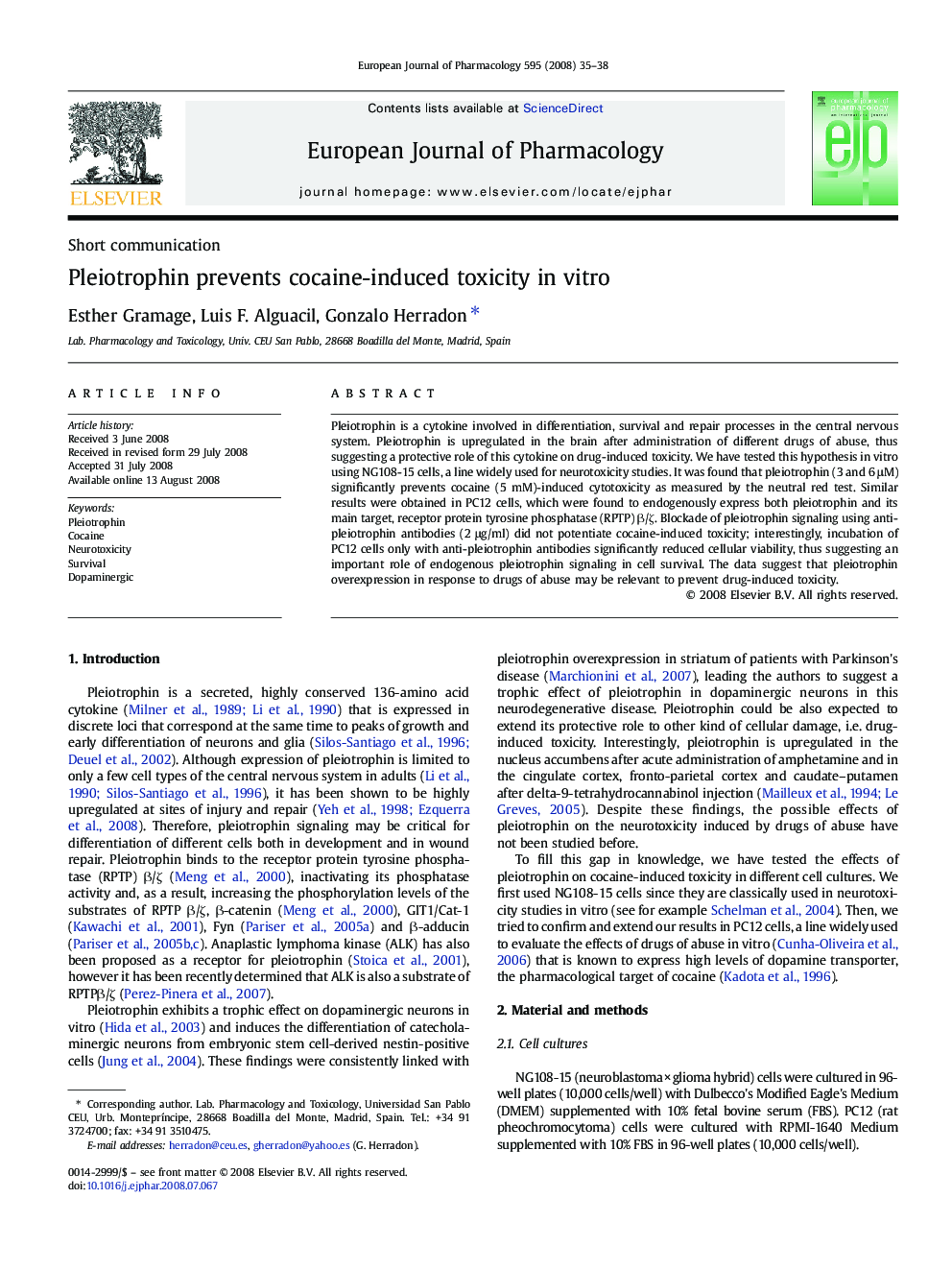| Article ID | Journal | Published Year | Pages | File Type |
|---|---|---|---|---|
| 2534832 | European Journal of Pharmacology | 2008 | 4 Pages |
Pleiotrophin is a cytokine involved in differentiation, survival and repair processes in the central nervous system. Pleiotrophin is upregulated in the brain after administration of different drugs of abuse, thus suggesting a protective role of this cytokine on drug-induced toxicity. We have tested this hypothesis in vitro using NG108-15 cells, a line widely used for neurotoxicity studies. It was found that pleiotrophin (3 and 6 μM) significantly prevents cocaine (5 mM)-induced cytotoxicity as measured by the neutral red test. Similar results were obtained in PC12 cells, which were found to endogenously express both pleiotrophin and its main target, receptor protein tyrosine phosphatase (RPTP) β/ζ. Blockade of pleiotrophin signaling using anti-pleiotrophin antibodies (2 μg/ml) did not potentiate cocaine-induced toxicity; interestingly, incubation of PC12 cells only with anti-pleiotrophin antibodies significantly reduced cellular viability, thus suggesting an important role of endogenous pleiotrophin signaling in cell survival. The data suggest that pleiotrophin overexpression in response to drugs of abuse may be relevant to prevent drug-induced toxicity.
